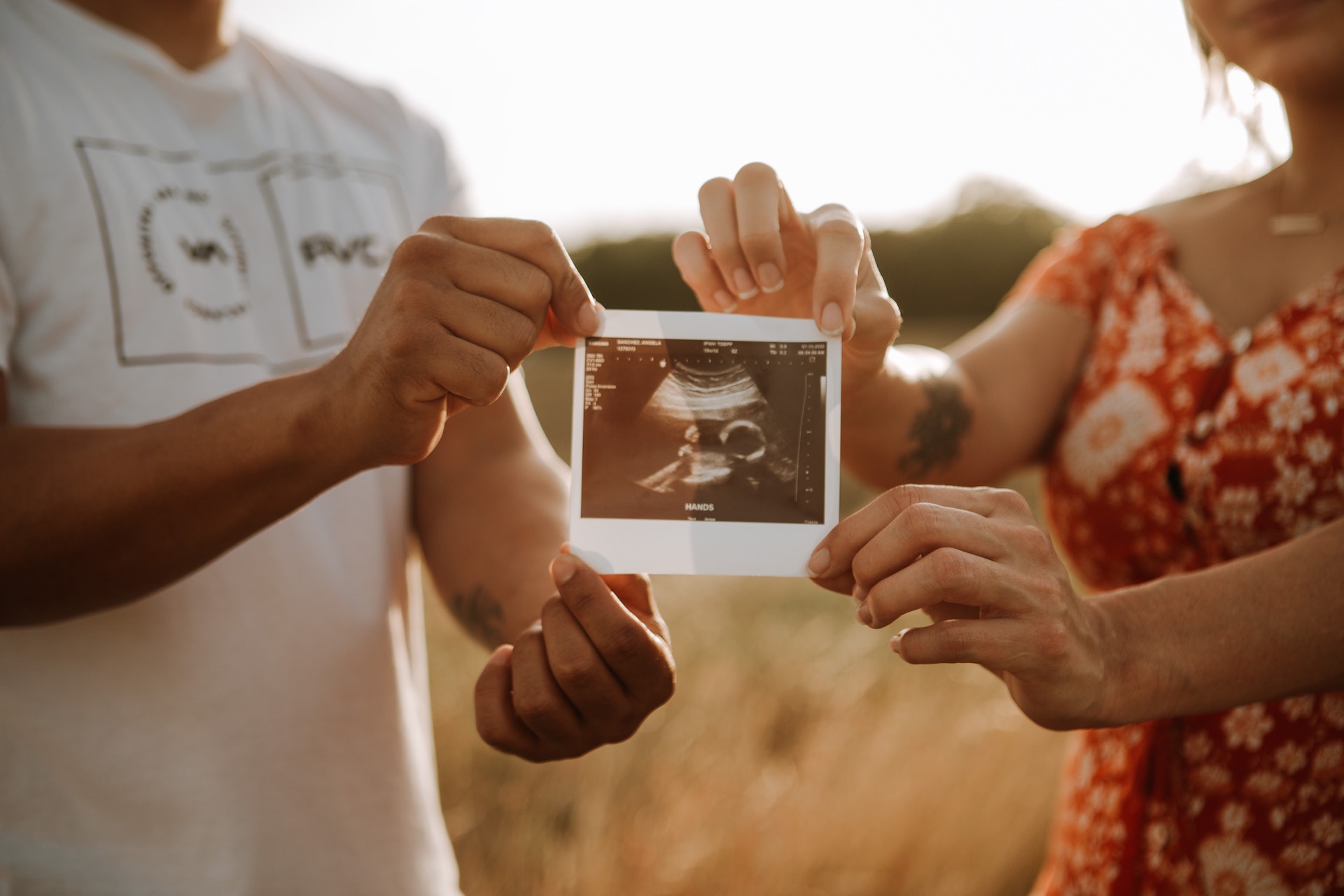 Oct 24, 2024 | by Lucy Solie-Vilker, Program Director
Oct 24, 2024 | by Lucy Solie-Vilker, Program Director
Deciding between fresh vs. frozen donor eggs is one of the first steps in the donor egg IVF process. In this blog, we get straight to the point in answering the questions you likely have. How do frozen vs. fresh donor egg success rates compare? How do the fresh vs. frozen donor egg costs compare? What does the timeline look like? How many eggs will I likely receive? Let's dive right in.
Fresh vs. Frozen Donor Eggs: Overview
Originally the only option available, using fresh donor eggs is still a popular option today. Using a fresh egg donor does have its perks; one of the main benefits is that you will receive all viable eggs retrieved. This is especially important for families who hope to have genetically related siblings.
However, using frozen donor eggs has been growing in popularity over the past decade due to advancements in egg freezing technology using the vitrification process. Not only have these advancements increased frozen donor egg success rates, but they've also made using donor eggs more accessible in general as frozen eggs can be shipped. The main perk of using frozen donor eggs is that its generally a much quicker process as the egg donor's part is already done.
How Does a Fresh Donor Egg Cycle Work? »
In a fresh egg donor cycle, the eggs are retrieved from the egg donor and immediately fertilized by sperm (from the male partner or donor) in a laboratory. Next, the embryos are grown to maturity for about 5-6 days, then the embryo(s) may be biopsied for preimplantation genetic testing for aneuploidy (PGT-A). At this point, if you've elected for a fresh embryo transfer,1-2 of the resulting embryo(s) can be transferred into the uterus of the recipient mother or gestational carrier. Alternatively, the embryo(s) may be vitrified and transferred at a later time, which is becoming a more popular option among IVF physicians.
The average number of eggs retrieved in a fresh cycle is 24, with 21 being mature, usable eggs. The amount of mature eggs retrieved varies, however, it's common for intended parents to receive between 15 and 21 eggs, typically resulting in 3-4 viable embryos. Many patients choose fresh one-on-one cycles with the hopes of being able to freeze additional embryos to try again for a genetic sibling in the future.
How Does a Frozen Donor Egg Cycle Work? »
In a frozen donor egg cycle, the eggs are retrieved from the egg donor then immediately frozen using the vitrification process and stored until they are needed. Once you have secured a cohort of frozen donor eggs from our egg bank, we will arrange for the eggs to be shipped to your IVF clinic. Some clinics will wait until you are ready, then carefully thaw and fertilize the eggs with the designated sperm to create embryos. Alternatively, some clinics may thaw the eggs ahead of time, fertilize and grow embryos, perform PGT-A testing, and then freeze the blastocyst embryos. Then the patient has a frozen embryo transfer similar to the fresh cycles.
The Donor Nexus Egg Bank provides you with a cohort of frozen eggs from your chosen egg donor, which will be shipped to your designated fertility clinic. Our cohorts vary depending on the number of eggs available from the specific donor. If the egg donor has more frozen eggs available and you are interested, more eggs may be shipped for an additional cost.
Fresh vs. Frozen Donor Eggs: Comparing the Most Important Factors
1. Success Rates
Let’s get right into what matters most: having a baby! It’s important to research the success rates of your chosen fertility clinic, egg donor agency, and/or egg bank, particularly with frozen cycles, to make sure that the clinic is well-equipped to handle frozen eggs. At Donor Nexus, our retrieval site exceeds the standards established by the Food and Drug Administration (FDA), College of American Pathologists (CAP), and California State Health Department Licensing Program.
Below, we list the most recent finalized fresh and frozen donor egg success rates (Live Birth Rates) as reported by the Centers for Disease Control and Prevention (CDC).
Fresh Donor Egg Success Rates
- National Average: Fresh Donor Egg Live Birth Rate: 53.5% (CDC, 2021)
- Donor Nexus: Fresh Donor Egg Live Birth Rate: 67.6% (Combined Fresh and Frozen Transfers. Cumulative Jan. 2012 - Jan. 2022.).
Frozen Donor Egg Success Rates
- National Average: Frozen Donor Egg Live Birth Rate: 45.8% (CDC, 2021)
- Donor Nexus Egg Bank: Frozen Donor Egg Live Birth Rate: 48.5% (Per cohort of 6 eggs. Cumulative, Jan. 2012 - Jan. 2022.).
2. The Amount of Eggs You'll Receive
The amount of donor eggs received in both fresh and frozen cycles vary across clinics, egg banks, and agencies. Typically, matching with a fresh egg donor cycle will provide you with a larger amount of eggs than a frozen donor egg cycle. At Donor Nexus, the average number of eggs retrieved in one fresh cycle is 24, with 21 being mature, usable eggs.
Alternatively, for a frozen donor egg cycle, the Donor Nexus Egg Bank provides you with a cohort of frozen donor eggs from your chosen egg donor, which will be shipped to your designated fertility clinic. Our cohorts vary depending on the number of eggs available from the specific donor but generally come in cohorts of 6. The number of frozen donor eggs shipped is dependent on the number of donor eggs available and the number of eggs you request. If the donor has more eggs available and the recipient is interested, more eggs may be shipped.
Surplus embryos can be frozen and stored for future use, donated to be used by other patients in a donor embryo cycle, or discarded.

3. Financial Investment
It’s no secret that there are many costs invested into donor egg IVF, whether using fresh or frozen donor eggs. At Donor Nexus, our Fresh Egg Donor Cycle starts at $28,100 USD and the cost for one cohort of frozen donor eggs starts at $19,500 USD. These fees cover the agency and egg donor fees – IVF costs to your fertility clinic are separate. We partner with CapexMD to provide our patients with access to fertility loans.
- Find our comprehensive list of IVF Grant Options here!
4. Timeline
The length of time it takes from start to finish may be an important factor to consider, depending on your situation. Generally, using frozen donor eggs is a more straightforward process, and therefore quicker, than using a fresh egg donor. A frozen donor egg cycle typically only takes 6 to 8 weeks whereas a fresh cycle takes 3 to 5 months.
Traditionally, a fresh donor egg cycle would require the egg donor and recipient to take specific hormones to synchronize their menstrual cycles to ensure that the recipient’s uterus is ready for the eggs as soon as the donor has reached ovulation. Nowadays, only a small portion of recipients have a fresh transfer. Most clinics cycle the egg donor, create embryos, and freeze the good embryos before starting the recipient mother or gestational carrier (GC) on medications. However, the timeline is longer because a fresh egg donor cycle requires the donor to complete her screening evaluations (which may take up to 3 months) before beginning her egg donation cycle.
During a frozen donor egg cycle, the donor has already been screened and completed her egg retrieval. This means there is less time spent waiting and the cycle can begin almost immediately.
5. Cycle Completion
As stated above, in a frozen donor egg cycle the donor has already completed her part, so, there's minimal risk of delay or cancellation. However, in a fresh egg donor cycle, there are a few external factors that could cause delays or cancellation of the cycle. These unforeseen scenarios, although rare, can and do occur:
- Donor not passing prescreen evaluations
- The donor decides not to move forward
- Donor not genetically compatible with the designated sperm provider
- The donor has a cyst on her ovary which delays the cycle
- Donor gets COVID and has to cancel
- Donor does not respond well to cycle medications
- Donor fails to take the trigger shot at the right time
With a frozen donor egg cycle, the donor’s work is already done. Since she has already successfully gone through the egg donation cycle and retrieval, there is no need to worry about the above external factors. From our experience, about 20% of egg donors do not make it through the screening process.
Shipping Frozen Donor Eggs Worldwide
At Donor Nexus, we can ship frozen donor eggs to fertility clinics throughout the US and internationally. Once the eggs are received by your IVF clinic, they will handle the thawing process before fertilization and transfer.
Should I Use Fresh or Frozen Donor Eggs?
Ultimately, choosing between fresh or frozen donor eggs is dependent on your specific situation. If you are unsure which is best for you, we recommend consulting with your IVF physician and scheduling a consultation with one of our case managers to review our programs and donors. We hope you found this comparison helpful in understanding fresh vs. frozen egg donors. If you have any additional questions, our team is here to help.
Additional Resources:
Related Blog Posts:
- Epigenetics and Donor Eggs: Exploring the Connection
- Should I Use Donor Eggs? A DEIVF Mother Shares Her Experience
- Egg Donation Explained: Nonidentified, Identified, Open ID
- What I've Learned From Choosing an Egg Donor 3 Times
- Explaining Donor Conception to Your Child: Dos and Don'ts
The information provided in this blog is intended to provide a generalized overview and is not to be considered medical advice. Please consult with your physician for actual medical advice specific to you.
Donor Database
Register now to receive free and instant access to our online donor database.
GET STARTED →My dreams have come true!
“We are enjoying our baby and we just love him so much!! Thank you again for this amazing gift- I’m so forever grateful. My pregnancy was so wonderful and I am really looking forward to everything… It’s amazing what you do for people. My dreams have come true!”
– Intended Parent B.M.


